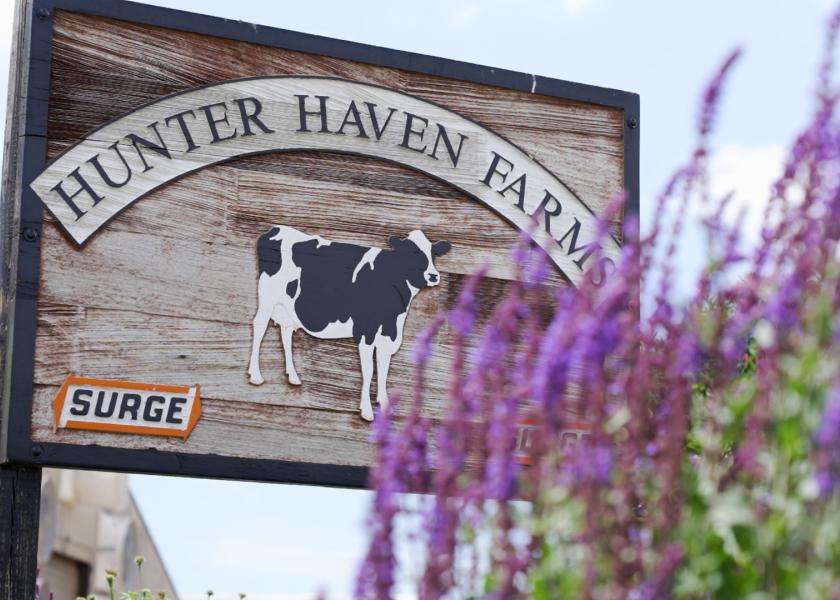Hunter Haven Farms Showcased During Dairy Technology Tour

Near Pearl City, Illinois, sits Hunter Haven Farms, which was recently showcased during the Dairy Technology Tour hosted by the Illinois Milk Producers Association (IMPA) and the University of Illinois Extension for their dairy’s technological advancements. Hunter Haven’s new owners and longtime manager Scott and Jennifer Brenner and Nathan and Amanda Dinderman led their farm tour to a virtual audience earlier this month.
“These tours are an excellent way for our farmers to get a behind-the-scenes look at the latest innovations, technologies and management practices on dairy farms throughout Illinois,” IMPA manager, Tasha Bunting says.
Hunter Haven Farms began in 1976 and after many years of success, the dairy transitioned ownership from brothers Doug and Tom Block and their families to being sold to the current owners in 2019. Brenner says that the transition for the farm, which was set up as a corporation in 1997, was successful because of solid planning. “The Block family wanted to see the dairy continue and we were interested in the opportunity to continue in the dairy business,” he states. “There were hard questions and compromises. But, if everybody has the same goal, in the end, you can make it work.”
Today, Hunter Haven is home to 925 cows who are milked three times daily and the farm produces most of its own feed on approximately 2,000 acres.
Hunter Haven has seen many changes over the years, including in 2000, when 100-stalls were added to the existing freestall barn. Five years later they installed a methane digester online and the following year 200 additional stalls were added to the barn. The decision to transition the old barn into tunnel ventilation was made about a decade ago. “Tunnel ventilation is much nicer for the cows,” Brenner says. “I think we see as much benefit in the winter as we do in the summer.”
Focusing on improving cow comfort, the farm’s goal includes purposely placing fans to generate an average windspeed around 7-9 mph through the barns via tunnel ventilation. “The system reduces the farm’s water usage as a different method to cool cows in the summer,” Brenner adds.
Further aiding to cow comfort, the farm creates its own bedding for its cows as the biodigester creates natural gas from cow manure, which forces the boilers to make hot water for the farm. This destroys pathogens and breaks down the fiber in the manure to create a byproduct used for bedding the cows.
Although the digester initially created electricity for the grid, after the farm lost the generator in a fire, the decision was made to utilize the digester strictly for the farm after repairs were made. The digester also produces a liquid product that is then used to fertilize Hunter Haven crops.
The 2,000 acres farmed by Hunter Haven, includes corn silage and haylage, which is part of the farm’s TMR diet. They also grow soybeans, which are sent to a local processor to be roasted and then fed back to their cows.
Focusing on feed costs, Brenner remarks that they concentrate on locking in their commodities and feed costs in. “Soymeal prices are up 50%,” Brenner said during the virtual tour. “If we were in the cash market now, it could add another 50 to 70 cents per hundredweight.”
Brenner also shared during the virtual farm tour that they made the management decision to custom raise all their calves to lock costs in and establish culling protocols.
To learn more about Hunter Haven Farm and to watch the Dairy Tech Tour video, visit illinoismilk.org.







